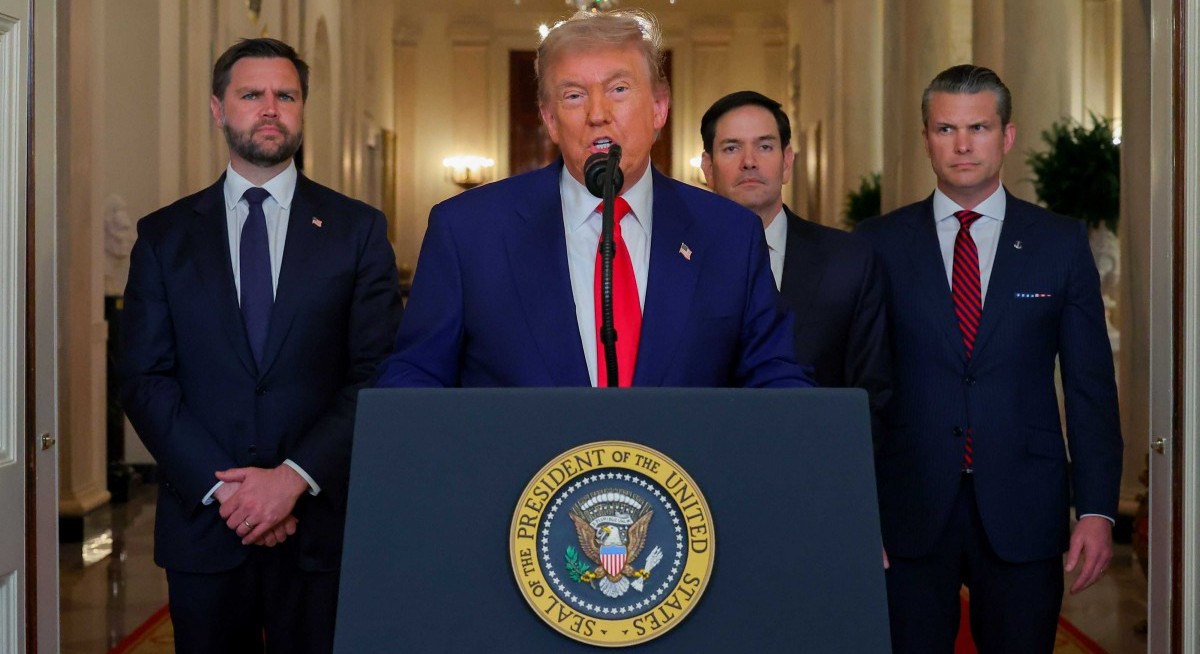The unfazed response from Middle East markets offers hope that the fallout for other global markets may not be dramatic, says Vasu Menon, managing director of investment strategy, wealth management at OCBC.
“Even if global markets see a sharp pullback on Monday, they may not be down and out, and the response may be temporary, and a rebound could materialise eventually,” writes Menon in a June 23 note.
Much depends on what Iran will do next, but the shock and awe of the US attack and the warning from Trump not to retaliate or suffer significant consequences may prevent Iran’s leaders from responding aggressively, he adds.
“Iranian leaders cannot be seen as doing nothing, but it could undertake a calibrated retaliation against the US, without provoking a harsher US military reaction — like in 2020, when the US killed top Iranian military commander General Qassem Soleimani,” says Menon.
See also: Asian stocks rise before jobs data; gold gains
Market impact
Middle East markets ended mostly higher on Sunday despite the attacks, notes Menon.
Israeli stocks surged almost 1.8% and closed at an all-time-high on hope that the conflict with Iran would come to an end given US involvement.
See also: Foreigners buy most Thai stocks in four years after election
Elsewhere, Saudi Arabia's Tadawul opened Sunday trading nearly 0.5% higher before erasing earlier gains and closing 0.3% lower.
Qatar gained 0.2%, Bahrain’s index added 0.3% and Egypt’s benchmark EGX30 was the major gainer in the region, closing 2.7% higher on Sunday.
Looking back at history, past flashpoints in the Middle East have caused oil prices to rise sharply at first but have failed to produce a lasting market reaction, says Menon. This was partly because the feared impact and disruption to oil supply failed to materialise, he adds.
A less-sanguine response would be if Iran targets US personnel; there are about 50,000 of them in the Middle East. Iran could also target US assets in the Gulf, energy facilities and possibly close the Strait of Hormuz by using mines or harassing passing ships, says Menon. This would disrupt 20% of global oil supply.
“This scenario could cause oil prices to rise sharply, but it could also elicit a strong US response, which could hurt the current Iranian leadership further and even bring about regime change,” he adds. “Iran’s leaders may not want to risk this because so far, Trump does not appear to be looking at toppling the current Iranian government for now, only at neutralising its nuclear capabilities.”
A lot hinges on what Iran will do next and if it will sabotage oil supply in the Middle East in retaliation, says Menon. “We will have to wait and watch over the next few days or even a few weeks to see how Iran responds.”
What should investors do?
For more stories about where money flows, click here for Capital Section
The current situation may keep investors nervous and markets volatile in the short term, but Menon thinks this is not a game changer for markets.
“Of greater consequence to markets may be the reciprocal tariffs that Trump will decide on by July 9. Trade concerns have taken a backseat due to developments in the Middle East but could re-emerge to the forefront in the coming weeks,” he notes.
Most US trading partners face the July deadline to make trade deals with the Trump administration, in order to avoid the “Liberation Day” levies that were first unveiled on April 2 and later postponed for 90 days.
Menon points to “a lot of idle liquidity on the sidelines” that could provide market support should there be sharp pullbacks. “This means that such pullbacks will offer an opportunity to buy [or] accumulate, rather than a reason to run for cover.”
Markets have been very resilient this year despite tariff shocks, inflation fears and geopolitical concerns, notes Menon. “While these events caused brief sell-offs, stock prices rebounded afterwards, and the snapbacks have been relatively fast and sharp.”
Having said that, however, there is scope for safe havens like gold to continue rising, he adds. “Global uncertainties are likely to remain a fixture and global central banks continue to diversify away from their US dollar holdings. We see gold rising to US$3,900/ounce over a 12-month horizon.”




